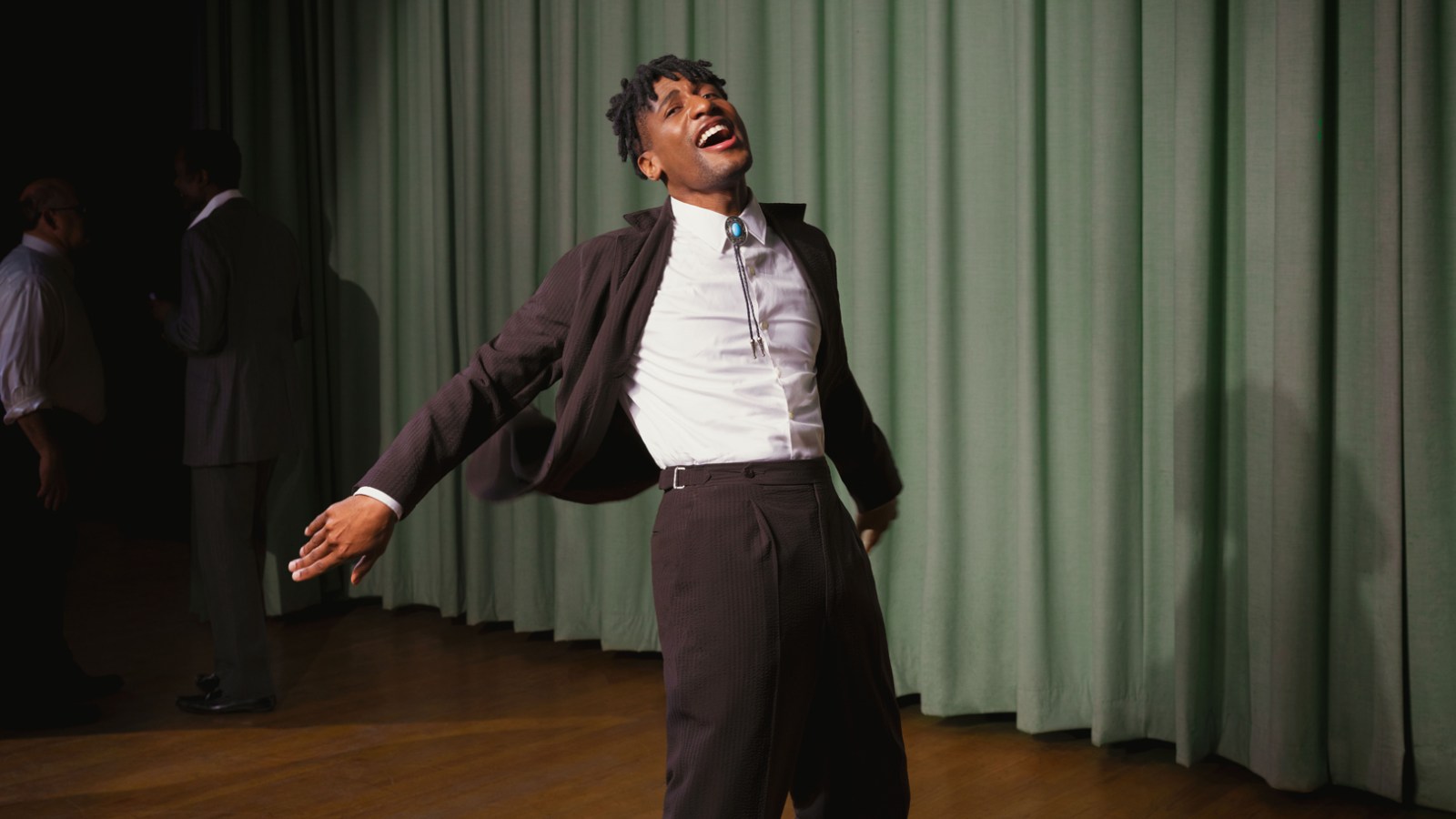
As a teenage musician, Jon Batiste used to call himself “a new-age blues artist.” Now, many genre-jumps later, he’s taking a deeply enjoyable left turn towards roots music on his seventh studio album, Aug. 22’s Big Money — and reminding the world he’s always been a bluesman at heart. “I’m just now making an explicit Americana blues statement,” Batiste says, “but for me, it’s at the beginning. It’s always the undercurrent. I think about everything that I have done, and it all is in some way a form of homage to the blues.”
The album ranges from a full-on Sly Stone homage on the Andra Day duet “Lean on My Love” to the title track’s mutated Chess Records R&B to the entirely unexpected rockabilly romp of “Pinnacle,” with Batiste playing at least as much guitar as piano throughout the album. As a whole, you could call it Americana, or simply rock & roll — and Batiste sees the album as part of a recent wave of Black cultural reclamation, a “repatriation process” that also includes Beyoncé‘s Cowboy Carter (which he guested on while he was in the middle of recording this album) and even Ryan Coogler’s Sinners.
”American history has oftentimes gone through this pattern of something being born and then it being transferred to anyone else other than Black folks,” Batiste says. “I had the honor to play with the Rolling Stones, and I know Paul [McCartney]. I love the Beatles, but how did this thing called rock & roll that was invented by a bunch of black sharecroppers and farmers in the South and then spearheaded by Little Richard and Fats Domino and Chuck Berry end up being [seen as] the result of the British Invasion? Rock & roll became our national music and became the face of our youth culture and national culture — and a white face at that — when, self-admittedly, they were playing songs and speaking to the ideas of these Black Americans.”
The album was born in spontaneous moments on Batiste’s tour last year, his first real outing as a solo artist. “I would run into people on the road and we’d go into sessions,” he says. “Every song is a performance. It’s me playing and singing at the same time with the band. All of us in the same room, breathing the same air, creating onto the tape.” Batiste is also launching a tour behind Big Money, kicking off Aug. 27 in Kansas City, MO and stopping at 30 venues throughout the country.
Five of the album’s nine tracks feature production by frequent Jay-Z collaborator No ID. “Music is so monolithic these days,” No ID says. “It’s tough to find people who have learned it enough to understand it from multiple perspectives, culturally. Jon is not just a genius-level player, but he’s a highly educated and scientific thinker…. Because I had an opportunity to work with someone so skilled and diverse, we weren’t in a box in terms of what we could do and what audience we could target. Jon is the most fun human I’ve ever worked in the studio with.” It was No ID’s idea to give the album’s final song, “Angels,” an airy reggae feel, and it ended up becoming a callback to the globetrotting sound of Batiste’s last album of originals, 2023’s World Music Radio.
Big Money‘s capitalism-tweaking title track (and first single) offers a broader mission statement for the album, as sung by Batiste and The Womack Sisters, who happen to be Sam Cooke’s granddaughters: “Might as well live for something you can feel/ Might as well live for something real.” As that lyric suggests, Batiste sees his organic approach as, in part, a rejoinder to the rise of A.I. music: ”I think about this album being a direct statement of the importance of people keeping these traditions alive,” he says. “AI is not going to ever replace this sort of practice. But I do fear that in the short term we’ll forget what this means, and why it’s important, unless artists make statements that are definitively of the essence of communal expression in the traditions of our music, and make them in a way that’s relevant to the contemporary mind and contemporary culture.”
One of the album’s most striking moments is Batiste’s piano-and-voice living-room duet with Randy Newman on “Lonely Avenue,” a bluesy Doc Pomus-penned ballad that Ray Charles made famous in the Fifties. The song was an unexpected product of the friendship Batiste has struck up recently with Newman, 81, who has faced serious health struggles in recent years — they initially bonded over their mutual gigs scoring Pixar movies, and soon started talking about New Orleans music and more. Newman hadn’t been singing or playing much, but when Batiste started playing piano at the older man’s house, he suddenly started singing along. On his next visit, Batiste came with recording equipment. “He was coming alive right before us,” he says.
Batiste hopes other musicians follow Big Money‘s roots-conscious approach. “We have such a profoundly rich cultural inheritance in America that many of us don’t know of, don’t fully embrace, don’t fully understand,” he says. “And artists just have to keep making statements that point back to that and counter things that are trying to dilute that or erase it.”